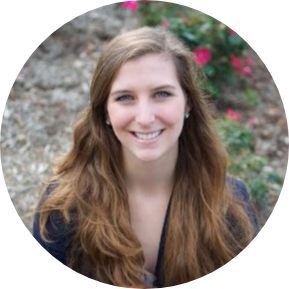Samantha Platt

Project Manager, TransPerfect
I used LinkedIn to connect to people and look for positions that I would be interested in.
About Samantha
Samantha Platt earned her MS in Clinical and Translational Research from Georgetown University Biomedical Graduate Education. After graduating, she became project manager for TransPerfect. Her graduate program provided a really nice overview of a lot of key elements of clinical trials (biostatistics, regulatory, study design, etc.) which made her feel knowledgeable going into her new professional role.
Can you briefly describe the work that you currently do and how you got to this position?
I currently work as a Project Manager at TransPerfect facilitating the design and build of Trial Master File (TMF) systems for clinical trials. Until very recently, all clinical trial documents were filed as paper TMFs and warehouses were filed up with old clinical trials data, which has to be saved for a period of time after a trial ends. Over the past 10 years, there has been a push to move the paper documents into electronic formats called eTMFs meaning that documents can be scanned and uploaded electronically into databases like Trial Interactive, which then give companies the ability to file their documents into an Index based on the DIA Reference Model or their own design. This process allows documents to be reviewed, sent for clarification, sent for finalization, or rejected from the system depending on their level of completion. Once all documents are collected, clients can choose to have TransPerfect continue to host their TMF and provide file access to the regulatory agency (MHRA, FDA, etc.) or the client can choose for us to send them an export of all of their documents on a flash drive or CD for submission to their regulatory agency. Overall the TMF gives CROs (Clinical Research Organizations) and Pharmaceutical Companies the ability to better organize their documents and track the overall progress of their clinical trials. I got this position through a referral from my previous boss at my first job out of college.
What Georgetown career development resources did you find useful for attaining your career goals?
I attended the mock interviews and the speed interviews through the career center. I got some great practice with the speed interviews because it teaches you to focus on being concise which can be hard when you’re nervous!
What advice would you give to current or prospective students looking to get into your line of work?
Getting your foot in the door is the hardest part, I knew I wanted to move into Project Management but without the formal experience it was hard. I got plenty of no’s but I was determined to not let it get me down. I focused on designing my resume to highlight key things and specific projects that demonstrated that I am organized, innovative, detail oriented, and motivated. I also read two books on Project Management because some interviews asked about specific Project Management processes that they utilize (Agile, Waterfall, Project Management Plan, Deliverable, Microsoft Project, etc) and I knew I needed to be able to speak to them in some capacity or relate past projects to specific Project Management Principles. Honestly though the most important thing is connections. You will at least get an interview on most occasions if you have a connection somewhere, and that tends to be the hardest part.
How did you negotiate your salary and starting package?
I always check Glassdoor, even before phone interviews, because you never want to be blindsided and fumble over this question! You want to know your worth when they ask. So I would look and come up with a number in mind that I wanted. When the question came up I would then ask about the range of the position and see if it met my ballpark number. Once I got an offer I never accept on the phone, I always ask if I can see the full package first. Why? Sometimes you could get a great salary offer, but the benefits are terrible or really expensive or they have no 401k match (yes think about all of this stuff!) or you get 5 holidays a year. I like to take time to look through the full package and really evaluate what I needed. 401k match isn’t usually negotiable but you could negotiate for transit benefits. In my case, my job didn’t cover me under their insurance until I had been there for 60 days, which was a pain since we’re all required to have health insurance now, so I was able to negotiate for them to pay my COBRA benefits. It saved me a lot of money and took just a quick email to ask. Never feel embarrassed to negotiate! Also, if you can…always ask for 3 weeks before starting so you can take some time off between jobs.
